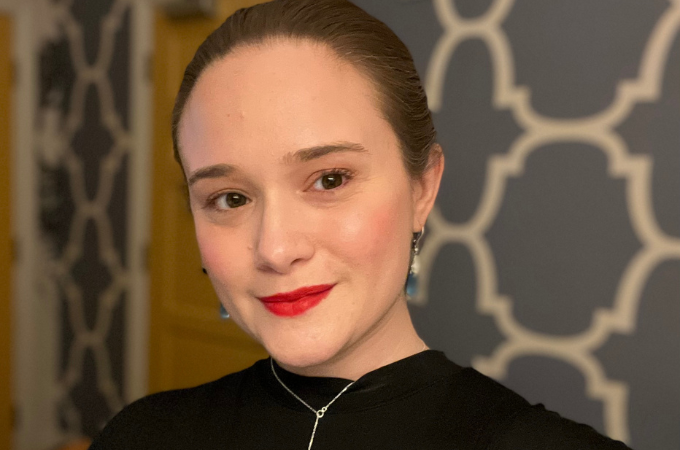
Jeanne-Marie Jackson-Awotwi, an Associate Professor of English, has taught African literature at John Hopkins University since 2014, after earning her doctorate in Comparative Literature from Yale University in 2012. Her work focuses on the comparative analysis of literary and philosophical materials. A 2021 Andrew Carnegie Fellow, Jackson-Awotwi’s ongoing book project. “Black Constitution: Law & Letter in J.E. Casely Hayford’s West Africa,” examines the significance of Hayford’s legalistic conception of character in the realization of his political visions. In this interview, the writer and editor Darlington Chibueze Anuonye chats with Jackson-Awotwi about her contributions to African literary studies, and to conversations around the contemporary African novel in particular.
***
Darlington Chibueze Anuonye
Hi, Jeanne-Marie. I read your review of Yewande Omotoso’s An Unusual Grief and was struck by your insight that the novel depicts “[m]aternal loss [as] the catalyst for all kinds of growth, including, for its main character Mojisola.” True to your opinion, Mojisola reminds me of Nnu Ego in Buchi Emechata’s The Joys of Motherhood, in her incarnation of such therapeutic self-search occasioned by loss. The death of a child powers the plot of An Unusual Grief and aspects of The Joys of Motherhood. While Mojisola’s daughter commits suicide, Nnu Ego attempts suicide as a response to her son’s death. But, while Nnu Ego’s loss makes her more desirous of social acceptance and less accepting of herself, Mojisola’s experience makes her more self-conscious, self-needing and self-caring.
Is this difference a strategic shift in the representation of motherhood in contemporary African novels?
Jeanne-Marie Jackson-Awotwi
The comparison between Emecheta and Omotoso is a good one: you’re right that they share some obvious thematic similarities, as novels about Nigerian women reckoning with maternity and specifically maternal loss. In some ways, An Unusual Grief is also an inversion of The Joys of Motherhood, both, as you say, on account of where and how suicide fits into the plot, but also in the sense that Mojisola’s trajectory toward something we might call “self-realization” is more optimistic. An Unusual Grief has a “happy ending,” of sorts, or at least a satisfying one from Mojisola’s perspective. We certainly cannot say the same of Nnu Ego’s fate in The Joys of Motherhood. Mojisola finds solitude, and Nnu Ego suffers isolation.
But the difference between Emecheta writing in 1979 and Omotoso writing in 2022 is also a difference in how African women writers are positioned vis-à-vis a savvier kind of global reader who is often quite hungry for critiques of cultural and gender essentialisms. And so, I would go even further than saying that An Unusual Grief marks a shift in the representation of motherhood in the contemporary African novel, and say that it’s part of a long, slow shift in how maternity is dealt with in contemporary writing. It no longer feels so taboo—either within much recent work, or in discussions of it—to foreground motherhood’s ambivalences, boredoms, and enforcement of gender inequalities. And if we are talking about world literature, this of course goes back centuries, at least to Madame Bovary and Anna Karenina. The difference now is that I’d say maternal ambivalence is more “on trend” than shocking. I can easily envision teaching Omotoso’s work in a class on African literature alongside Emecheta’s novel, and Flora Nwapa’s One is Enough, to say nothing of Nadine Gordimer’s The Late Bourgeois World. But I can just as easily imagine teaching it in a course that includes smash-hit “motherhood books” by writers like Rachel Cusk, Sheila Heti, or, in translation, Leila Slimani, to name only a few possibilities.
Darlington Chibueze Anuonye
You could include Ukamaka Olisakwe’s Ogadinma in that African list. And on World Literature, there is Zora Hurston’s Their Eyes Were Watching God. Ogadinma, the eponymous protagonist of Olisakwe’s novel, is similar to Hurston’s Janie. The lives of both characters illustrate the kind of agency some women want for themselves, to be free from the stranglehold of patriarchal culture, orthodox religion and motherhood. From marrying at the age of eighteen to struggling to be a good wife, from being a good wife to abandoning her child and husband—Ogadinma privileges the self over marriage and motherhood. But there are the difficulties of life, the double difficulties of the female life, which continue to trail her after her marriage ends. To survive these, Ogadinma resorts to transactional sex. So, in a manner of seeing and of speaking, she still depends on men. This brings me to a point you made in your review of Dangaremgba’s This Mournable Body.
Describing the novel as “a wrenching book,” you remark that “Dangarembga is no less unflinching in depicting the country’s economic woes” and that “[h]er work might be better understood as showing how real lives become the stuff of trope.” It appears Tambu’s eventual loss of her sanity is the same as Zimbabwe’s condition. Could Dangaremgba be equating the female condition with the state of the nation? Does she suggest that the progress of post-independence Africa is tied inextricably to how the continent treats its women?
Jeanne-Marie Jackson-Awotwi
Yes, in Dangarembga’s case and as concerns This Mournable Body in particular, I certainly think it’s fair to say that the lack of satisfying life prospects for even as ambitious a woman as Tambu gives the lie to all sorts of ZANU-PF myths about Zimbabwe’s path to glory. But as I tried to suggest in the essay you’re referencing, from the New Left Review a few years back, the most commanding part of that book is that Tambu’s fate is still so intimately linked to the fate of the nation at all. That is by no means a given in the era of big transnational network novels by African women, like Americanah or Homegoing. What makes Dangarembga such an important and daunting figure to reckon with as a critic is her stalwart refusal to get “beyond” what we might call her nation’s—and perhaps the nation’s—unfinished business. She will say as many times as needs saying that Zimbabwe has failed to fulfill its most basic promises to its citizenry, and she doesn’t care whether that’s timely or innovative or fun to ponder for its own sake. She is not showing off novelty; she is fighting for rectitude.
As for whether her novels’ focus on women’s lives as a barometer for national progress speaks to broader truths on the continent, I’d say yes, but only up to a point. I care deeply about women’s fair treatment wherever I am, and it’s undoubtedly the case that infringements on our rights anywhere, including here in the States, with the recent fiasco around Roe v. Wade, point to social rot. But there are other groups whose treatment can now often better gauge social temperaments and limitations. In Ghana, for example, I would not hesitate to bring up a novel about even fairly incendiary gender themes, for example in Ayo Tamakloe-Garr’s The Wolf at Number Four. It would be riskier in many settings to discuss a book about gay love, and that tells me a lot about where writers should be looking.
Darlington Chibueze Anuonye
To be fair, in spite of the gross homophobia in Africa or because of it, African writers have, especially in the twenty-first century, focused attention on the lives of queer people on the continent. So much has been achieved since, let’s say, Abdulrazak Gurnah’s Memory of Departure, which deploys the sexualities of queer men and boys to describe the decay of the newly independent Tanzanian nation. There is Jude Dibia’s Walking with Shadows, which tells the story of Ebele Njoku, a married gay man, who must choose between his family and the pursuit of sexual happiness. With the publication of Frieda Ekotto’s Don’t Whisper Too Much, gay affection is depicted positively, for the first, in African literature. Queer people no longer represent postcolonial filth nor do they bear the burden of choice, they rather live well and fully, even if still in quiet protest that their lives matter.
This is what Ada, Ekotto’s protagonist, does. She is a historian of her own life and the larger queer history, a fearless and relentless chronicler of variegated private relationships and social moments. Through her intellectual and emotional commitment to queer histories, she repudiates the claim that queerness is foreign to Africa, sampling her own life as a piece of enduring evidence for future generations. In memoirs, there is Chike Frankie Edozien’s Lives of Great Men, Unoma Azuah’s Embracing My Shadow, among others. There are also anthologies like She Called Me Woman, edited by Azeenarh Mohammed, Chitra Negarajan and Rafeeat Aliyu, which documents the experiences of queer Nigerian womxn. Even more recently, Anathi Jongilanga and Moso Sematlane edited Something in the Water, an anthology of short stories that frees stifled Southern African queer voices and gives them the agency to return to the water, the fountain of freedom.
My point is that African writers are not looking away from where it matters. Which African queer novel would you be found teaching or discussing in class?
Jeanne-Marie Jackson-Awotwi
To your larger point that there is not a dearth of gay or queer writing from the continent: yes, of course. I’d never suggest that there was. But to be clear, your last question wasn’t specifically about what themes or subjectivities could or could not be found in African literature. It was about whether Dangarembga’s efforts to “take the temperature,” as it were, of the nation as such through the status of its women was applicable beyond Zimbabwe. And to that, I answered, yes, but other things may serve that purpose even better at this point in history.
My favorite novel on queer themes to teach has long been, and I suspect will long remain, the late South African genius K. Sello Duiker’s The Quiet Violence of Dreams. It is an astonishing work in so many ways, not least of which is its ability to use Cape Town’s thrumming and idiosyncratic nightlife as a means of outward psychological projection. I also love that it doubles as a queer novel of ideas, especially in the talk-heavy scenes that take place in a cafe called Ganesh in Cape Town’s bohemian—if now quite gentrified—neighborhood of Observatory. I know Ganesh and its owners well and so it’s a treat to share “real life” reference points with non-South African students. But more importantly, Ganesh and some of the novel’s Sea Point settings powerfully and atmospherically depict a bygone 90s social utopianism that is now the stuff of history. That vision was already fraying within Duiker’s work, thus the mix of violence and dreaming in even the title, but it nonetheless captures an important moment of local exuberance before the personal and arguably social tragedy that befell him.
Darlington Chibueze Anuonye
Thank you for the clarification.
In your review of Panashe Chigumadzi’s These Bones Will Rise Again, you draw attention to the exilic consciousness of new Zimbabwean literature as well as to the diasporan Zimbabwean writers’ compulsive need to constantly define their citizenship. “It’s not easy to be a Zimbabwean writer abroad,” you write. “[I]n addition to having to answer familiar questions about who speaks for whom, writes to whom, and by whom their books are published, writers in the diaspora have to negotiate citizenship from a distance.”
This appears to be the case in the larger postcolonial African writer.
For instance, Gurnah’s Pilgrims Way and Desertion depict the consequences of the Tanzanian experience of colonialism in the new Western locations where characters like Daud and Rashid, struggling with the yoke of racism, are condemned to speak for all oppressed and marginalized black people. Also, Adichie’s Americanah explores Nigerian lives and experiences beyond the country, speaking coherently about the interconnectedness of and differences between Nigeria and America. Ifemelu’s life in Nigeria and her relocation to America constitute an arresting portrayal of the fate of Nigerians at home and abroad. So, we could say that Americanah conveys Adichie’s rootedness both in Nigeria and in America, just as Pilgrims Way and Desertion establish Gurnah’s reputation as an artist sensitive to the multiple world experiences of colonial East Africa. What is striking about the Zimbabwean experience?
Jeanne-Marie Jackson-Awotwi
To be sure, African writers have long been at the vanguard of exploring diaspora and emigration as nationally constitutive phenomena, across a wide swath of countries. And they’ve often done so with an eye specifically to how internal class dynamics are consecrated from “outside.” The trope of the “been-to” in West African literature in the post-independence era is another example that I’d add to those you’ve provided—as featured in Achebe’s No Longer At Ease or Armah’s Fragments. In that sense, my characterization of Zimbabwean literature in that essay may indeed be read as one case study that stands in for a larger situation. That said, even if Zimbabwe is not an exception in terms of the kinds of broad insider/outsider themes its literature foregrounds, it is certainly distinctive in their extremity.
Along with the topics of transnationalism, travel, and fraught global African ambassadorship that you list, Zimbabwe also forces us to think about culture from the slightly different angle of “remittance.” Is remittance relevant elsewhere on the continent? Yes, obviously, any African living abroad will tell you that. But Zimbabwe relies on its diaspora to an astonishing extent. In 2020 alone, remittance income grew by 58%, bringing its total amount to about $1 billion. And this isn’t Nigeria! It is a country whose total population is only 15 million, with at least 5 million people also living abroad—by some estimates, that number is as high as 7 million. Relatively few of the Zimbabwean writers making names for themselves elsewhere—including Chigumadzi and Novuyo Rosa Tshuma, the two writers whose work that n+1 essay featured—live mainly in Zimbabwe. (Virtually all of my favorite Ghanaian and South African writers, in contrast, live in those countries.)
This shouldn’t be fodder for guilt or condescension or exclusion, on critics’ and readers’ part, but for earnest grappling with what a remittance economy means as an undergirding condition of cultural production.
Darlington Chibueze Anuonye
In your review of Jennifer Nansubuga Makumbi’s Kintu, you make the following observation:
Kintu is not in the business of offering political prescriptions or even historical explanations; it is committed, rather, to giving the archive of African experience its most full-throated expression, in all its junctures and pivots and points of overlapping possibility. It is, finally, a novel that gives the lie to pat dismissals of both “African” tradition and “Western” modernity. Because regardless of which avenue one chooses or doesn’t choose to make sense of life, he or she will be punished, as Kintu’s final line wagers, “for knowing and refusing to know.”
I think that at the core of the novel is a sustained engagement with traditional African myths, which illuminate the historical and cultural past of the characters as well as depict the cyclic political misfortune of postcolonial Uganda. Is it not fascinating how traditional myths yield themselves readily to modern experiences, offering clarity to the complicated and daunting human puzzles?
Jeanne-Marie Jackson-Awotwi
It is fascinating, yes, and Makumbi continues to explore how collective storytelling affects individual decision-making in her more recent novel, A Girl Is a Body of Water. But what Kintu does so brilliantly is to obscure the line between myth and history on the level of form, not just theme. It is not particularly interesting, anymore, merely to observe that historical actors and events gain social power through their mythologization. Everyone reading this could I’m sure come up with five examples of how that happens, wherever they’re from. In African literature, struggle autobiographies have perhaps served that function most prominently. But Makumbi took Buganda’s founding myth as a canvas to play with key features of narrative at a high level of technical sophistication and self-awareness. Kintu is full of interjections from its past sections into its present ones, for example, we can read to different effects as either one character’s interior monologue or the product of an aggregative narratorial presence.
Key parts of the book pose and then refuse to resolve fundamental questions about whether the workings of an individual mind are best viewed as epiphenomena of material histories, or whether what later gets sanctified as history is more shaped by unrecognized cognitive phenomena. What I also try to stress to my students about Kintu is that it goes far beyond “celebrating” or even “validating” its African epistemological inheritance. It is easy to get stuck in that mode of reception because African epistemologies—and, as you say, mythologies—have been sidelined and subjugated by both colonial and neocolonial forces for so long. But rectifying that wrong is not the only reason to read Kintu anymore than it is the only reason to read Proust. It is intrinsically interesting to think about the interlinking scales across which memory takes shape.
The success of Makumbi’s work, then, has made it easier to grab hold of a whole constellation of terms whose shared angle in literary discussions is often toward something like “recovery”, for example, African mythologies, cosmologies, ontologies, etc. In this light I place Kintu alongside books like the South African writer Mpush Ntabeni’s The Broken River Tent, to name another recent example of a novel that works deliberately between mythic and historical registers. And yet at the same time, to think only in terms of recovery does such works a disservice, because they are narratively and epistemologically challenging in their new textual contexts, too.
Darlington Chibueze Anuonye
In your article, “New African literature is disrupting what Western presses prize,” you observe that the “commercial prominence” of new African literature “has attracted considerable and unsurprising pushback from Western and Africa-based critics alike. Far from advancing narratives with deep roots in local African realities, such critics fear, many of Africa’s most “successful” writers hawk a superficial, overly diasporic, or even Western-focused vision of the continent.” Here you are speaking specifically of postcolonial African literature’s overdependence on the publishing structures of the West, I imagine that there are more far-reaching implications for the African writers’ craving for Western literary prizes.
Jeanne-Marie Jackson-Awotwi
I’m not sure I’d put it in terms of anyone’s craving for literary prizes, necessarily. Writers write to be read, by as wide an audience as possible, and presumably welcome institutional validation when and if it comes. When I wrote that piece, I wasn’t looking to criticize African writers who sign with big, for-profit U.S. publishers—the so-called Big Five—though I realize that other critics have sometimes been harsher on this score and that I may have seemed to echo their concerns. What I felt then, and still do, is simply that it is incorrect to use “global African literature” as shorthand for only such “big money” books. Global African novels like Americanah or Homegoing tend to do certain things very well, for example, quick pacing and elegant transnational plots. But by default, a publisher whose raison d’etre is to maximize sales is going to have to sacrifice other things, like formal difficulty, locational and/or cultural granularity, and sheer weirdness of content. And many Africans, like people in general, are gloriously weird!
Go read the Ghanaian writer Martin Egblewogbe’s short stories. This is not a new point; it’s been made ad nauseum in debates about so-called World Literature. In 2017 I was simply trying to indicate that there is a vast array of independent publishers even in “the West,” that lazy word, who take more risks and (re)publish African books that are often quite revelatory, on a smaller scale. In addition to the presses mentioned in that original piece, I’d also add Catalyst Press, which publishes Siphiwe Gloria Ndlovu’s work in the U.S. That said, I am clearly being diplomatic with this answer and partly skirting the question. I will also acknowledge, as I think you’re suggesting, that I do indeed think it’s the case that over-reliance, especially on U.S. publishers and circuits of prestige, contributes to repetitive and often tedious debates around the subject of African literature, as well as to flat, self-involved writing.
One example of this as far as topics of debate are concerned is the evergreen griping about African writers pandering to the Western/white/global gaze, pick your particular poison. And of course, some people do. And yes, their work is conceptually and historically attenuated as a result. But there is so much else to discuss. Pointing out the same “problematic” things over and over strikes me as less valuable than re-directing one’s focus to richer alternatives.
Darlington Chibueze Anuonye
Thank you for recommending Egblewogbe’s short stories. I am familiar with his work. His short story, “Fever,” published in Afreada in 2016, has one the most intriguing endings I have yet read: “The rest of Jeremy’s penis had arrived.” I try to imagine it, the idea of instalment manhood, whatever that means. You see, it’s great art, great art makes us imagine. His second collection of short stories, The Waiting, which I suppose you are referring to, is a network of traditional myth and modern science connecting Ghana’s postcolonial cataclysm to the otherworldly chaos of alien spaces. What exactly do you admire about Egblewogbe’s writing?
Jeanne-Marie Jackson-Awotwi
As it happens, I’ve got a chapter forthcoming on exactly this topic in a volume called “Decolonizing English Literary Studies,” edited by Ato Quayson and Ankhi Mukherjee. I wish I could direct you right to it, but it may still be a while in the publication pipeline. The upshot of the piece is that Egblewogbe is entirely “Ghanaian”—he lives there, writes there, and was fully formed by the country and its languages—but in no way “representative” of Ghana. His intellectual interests are sweeping. I’d describe them as existential, metaphysical, and surrealist. Unlike many African writers and critics who make their professional lives abroad and have ambivalent feelings about what that means for cultural—and frankly, socioeconomic—identity, Egblewogbe has nothing to prove, and so he can wear his cultural location lightly. I think that this is in itself a huge contribution to African literature because conversations about who or what is or is not “African” could, and I suspect will, go on forever. Egblewogbe is Ghanaian by the most concrete and straightforward definition, and a sensitive reader should well just leave it at that and open themselves up to exploring the sheer bizarreness of his work.
My own chapter, for what it’s worth, focuses on a few selections from Mr. Happy and the Hammer of God & Other Stories (2012), which it describes as “profoundly and existentially self-minoritizing rather than only social-minoritarian works, in the sense that they do not speak for any position that finds commonality through culture or even location. Instead, Egblewogbe’s stories serve as a useful example of cultural transcendence achieved not through individual complexity but through cosmic anonymity, thereby confounding both ethnographic and limitingly counter-ethnographic pedagogical approaches to African writing.”
Darlington Chibueze Anuonye
These are solid observations. I should read your essay once the book is out. And, I am glad that this article is the product of collaborative editing between Quayson and Mukherjee. That brings me to your ongoing editorial project with Cajetan Iheka, titled “Intellectual Traditions of African Literature 1960-2015.” Why is it necessary for scholars to be so anthologized? And what should readers expect from the work?
Jeanne-Marie Jackson-Awotwi
I see anthologies as field-building projects in a very explicit way, whereas journal articles and monographs are at least as much about the development of a particular career. All have their place in ensuring that institutionalized knowledge continues to move. I say “institutionalized” because of course knowledge exists in other forms; books are a tool for delineating it in a way that can be more-or-less easily circulated and yet has some semblance of permanency.
I view the particular anthology that I’m co-editing with Cajetan—a close collaborator and friend—as a chance for people across all ranks of African literary studies to reflect, in concert, on how our field has shaped the contours and not merely the content of humanistic inquiry. Each chapter will expound on a keyframe, or perhaps a lever, that allows for a sharper understanding of how African literature has both generated conceptual language and engaged with that of other critical movements. “Modernism,” as one example, is both constitutively African and fundamentally outward-looking. The book’s line-up is truly superb, with contributors from a wide range of academies and traditions. We hope that it will also represent a good snapshot of the field, at this moment.
Darlington Chibueze Anuonye
You received your PhD in Comparative Literature from Yale University in 2012, before joining the Johns Hopkins faculty in 2014. Your “work addresses questions of comparative method, literature and philosophy, and interpretive scale, mainly in the framework of African literature and intellectual history.” Why African literature?
Jeanne-Marie Jackson-Awotwi
If only I had a dollar for every time someone has asked me this question! It’s a fair one, nonetheless, because I don’t have either an African or a so-called Africanist background. I was not trained in area studies but, as you note, in Comparative Literature with its polyphonic emphasis. The best way I can think to answer the question of “why African literature” is that I followed the books that interested me because of their heightened “pitch,” as it were. My undergraduate degree is in Russian Language and Literature, and so I was trained to think deeply about how unusually intense and prolonged periods of social contestation end up registering at the level of narrative form. A degree in Russian, aside from its particular linguistic and historiographical rigors, confers an attunement to how a rhetoric of crisis can both embolden and obscure self-understanding. That, I think, is relevant to any number of African literary traditions, and certainly to “African literature” as an international institutional configuration dating from the 1960s.
From Russia, I built a bridge to South Africa early in graduate school, and to Afrikaans, in particular; from South Africa, I found my way to Zimbabwe, in English and Shona; and from Zimbabwe worked toward a broader interest in robust written African philosophical traditions, which has ultimately landed me on Ghana’s Fante coast. I do think it all comes together, even if it’s difficult to generalize about!
Darlington Chibueze Anuonye
Your most recent book, The African Novel of Ideas: Philosophy and Individualism in the Age of Global Writing, “reads African novels through the lens of African philosophy to craft a story of how the form has negotiated between liberal selfhood and liberal critique.” What is the range of this book? And what are its most significant contributions to or interventions in the scholarship of African literature?
Jeanne-Marie Jackson-Awotwi
The book’s range is temporal, geographical, and disciplinary. As to the first type of reach, it endeavors to chart the African novel’s evolution across roughly a century. It starts with J.E. Casely Hayford’s Gold Coast novel Ethiopia Unbound in 1911—the first African novel published in English—and culminates with a number of southern African novels published in or around 2014. The basic premise is that the novel and philosophy are vital if often unspoken partners, as far as African contexts are concerned, but that the salience of philosophy within novels—its depiction as a socially agentive force, that is—wanes over time. It does not cover all African philosophical approaches or every African novel, because no book could do that without cutting some serious corners. What it does do, I hope, is address some large-scale questions about how individual intellection complements deep attunement to place, in narratively and conceptually careful ways.
This effort to couple ambition with precision across two narrative disciplines is also what I dare to hope might contribute to African humanistic scholarship, which sometimes finds itself stuck in a no man’s land between big mantras and close readings. I guess we’ll see. In terms of its geographical range, it moves from proto-nationalist Ghana, to Kintu contextualized with reference to other Ugandan and Kenyan novels, to southern Africa—South Africa and Zimbabwe. And as far as discipline goes, it solders African novels to African philosophy—you could say “analytic” philosophy, but I’d more meaningfully pinpoint its meta-philosophical strains—using shared terms of interest.
Darlington Chibueze Anuonye
Your first book, South African Literature’s Russian Soul: Narrative Forms of Global Isolation “is centrally concerned with how Russia’s nineteenth-century Golden Age of literature and ideas provides a model for the study of South African realist forms and epistemologies both during and after apartheid. It also argues for perceived disconnection as a source of far-flung transnational affinities, challenging the salience of the global as a method and analytic category.” Why South Russia and South Africa?
Jeanne-Marie Jackson-Awotwi
I spoke a bit about that already, but there are some more focused points of convergence that might be worth mentioning here. First, I found before writing that book that the more South African literature I read in English and Afrikaans, the more I was impressed by the density of its references to and affinities for nineteenth-century Russia. This isn’t necessarily what I would have expected, going in. The Cold War comparison is the more obvious (and frankly, more marketable) one since the Soviet Union was such an important political and economic partner to the anti-apartheid struggle, and because we still live to some degree within Cold War political structures. Those synchronous references are there, of course, and if I’d been savvier about my early career, I’d probably have zoomed in on them. But more often I was struck by South Africans’ textured allusions to Tolstoy, Dostoevsky, Turgenev, and Chernyshevsky, which together seemed to create a different entry point into South Africa itself.
In short, I saw South African writers across race and language both invoking the Russian “Golden Age” of literature and ideas in a deeply learned way, and using it to explain themselves to themselves, especially through a shared propensity to self-pathologize. As luck would have it, I got a job with a group of colleagues I deeply respect in Johns Hopkins’ English Department, and you can bet I breathed a serious sigh of relief given my first book’s unabashedly off-beat comparative focus.
Darlington Chibueze Anuonye
Any thoughts on your ongoing book project about the Gold Coast statesman and writer J.E. Casely Hayford?
Jeanne-Marie Jackson-Awotwi
J.E. Casely Hayford is one of the most influential and under-studied subjects in African history. Not just literary history, mind you, though he is the author of what is often named the first novel published in English by an African. He is also a key figure in the history of the African humanities, African legal thought, global modernism, and practical pan-Africanism. The list could go on. And yet perhaps because his career was so protean and his beliefs not easily summarized, he is usually relegated to the footnotes of both Africanist and Afro-diasporic scholarship. I want to rectify that, and with a third book, it’s easier to think about what kinds of projects might really be useful, rather than just how to make dazzling arguments to get tenure.
I’m glad that you called it a book project, though, and not a biography, because its genre is not yet fully clear even to me. Its working title is Black Constitution: Law & Letter in J.E. Casely Hayford’s West Africa—shout-out to my friend and colleague Nana Osei Quarshie for his help with that one!—and each chapter is devoted to showing how an important legal concept worked to help Casely Hayford carve out a character protype up to the task of achieving the political change he envisioned. He had monumental plans for the “learned Fante gentleman,” which he imagined as nothing less than the key to the British Empire’s revisioning along African lines. In the smallest habits of mind, his writing spells out the grandest civilizational mission.
Darlington Chibueze Anuonye
You joined the English Department at John Hopkins University in 2014, and have been teaching African literature since then. What is the current state of African literary studies in American academic institutions?
Jeanne-Marie Jackson-Awotwi
I can only truly speak from my own institutional vantage point, which is about as privileged as it gets. Even so, I go hot and cold on where I think African literature stands over here. My introductory courses are consistently full, and represent a mix of American, African, and other international students—as well as many first-gen African ones. We have a huge African student body at Hopkins. But unfortunately, it can still be a struggle to fill more advanced courses on the subject, for any number of reasons. One of them is that the bulk of our undergraduates—African students very much included—major in STEM fields. And who could blame them? Certainly not me.
It does mean, however, that I tend to think of my research and teaching as occupying quite different domains. I’m currently writing about early twentieth-century African intellectual history, but most of my teaching centers on recent global literature because that’s the biggest student draw. I do fear that African literature’s recent topicality with talk of Africa Rising, Afropolitanism, etc.—let’s call it the Adichie Effect—can sometimes work against it being taken seriously as a field with a long and internally differentiated history. I don’t want African literature to be the place people come for an easy ride.
In a broader definition of “American academic institutions,” which would include scholarly organizations and the like, my deepest wish is to see more Africa-focused literary scholars included in what still often skate by, if tacitly, as generalist conversations. I don’t mean people who name-check one African novel that everyone’s read, but scholars whose careers are defined by the assumption that African literature is an integral rather than additive part of English and Comparative Literature curricula. The number of Africanists working at the top of “the profession” is still vanishingly small. Changing this will take openness on both ends of the equation: African literature didn’t develop in a vacuum, and nor should writers and literary scholars be complicit in its own nationalist re-provincialization. But the main challenge is that American academe is still too provincial to routinely do more than gesture to “de-centering.”
We really love to hear ourselves talk about how much better we need to be. Even so, calling again and again for inclusion of “other” points of departure in reckoning with the state of the humanities is an incantation, not a promise. Let’s all just shut up and do it, is how I often feel.
Darlington Chibueze Anuonye
“I don’t want African literature to be the place people come for an easy ride.” This is both a prayer and a wish. I hope African literature continues to thrive.
Jeanne-Marie Jackson-Awotwi
I am certain that it will. Thank you so much for reading my work, and for this kind invitation to talk about it!



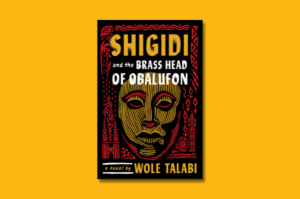
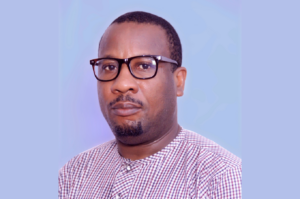

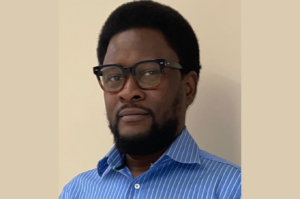
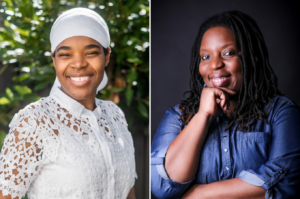
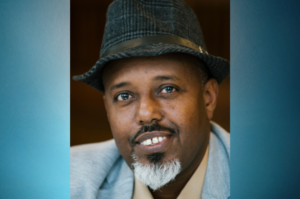

COMMENTS -
Reader Interactions